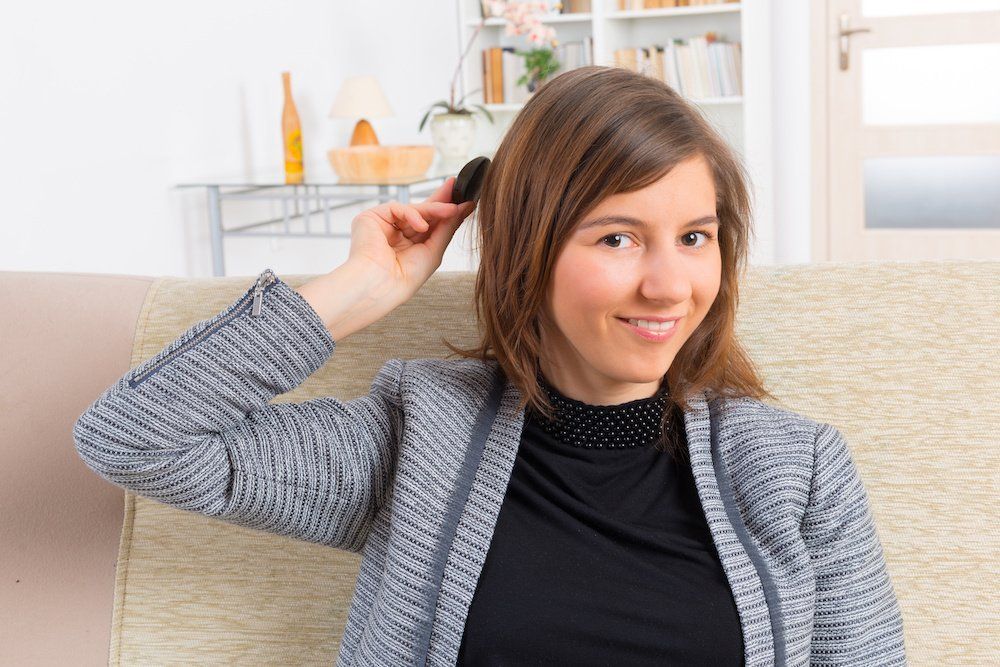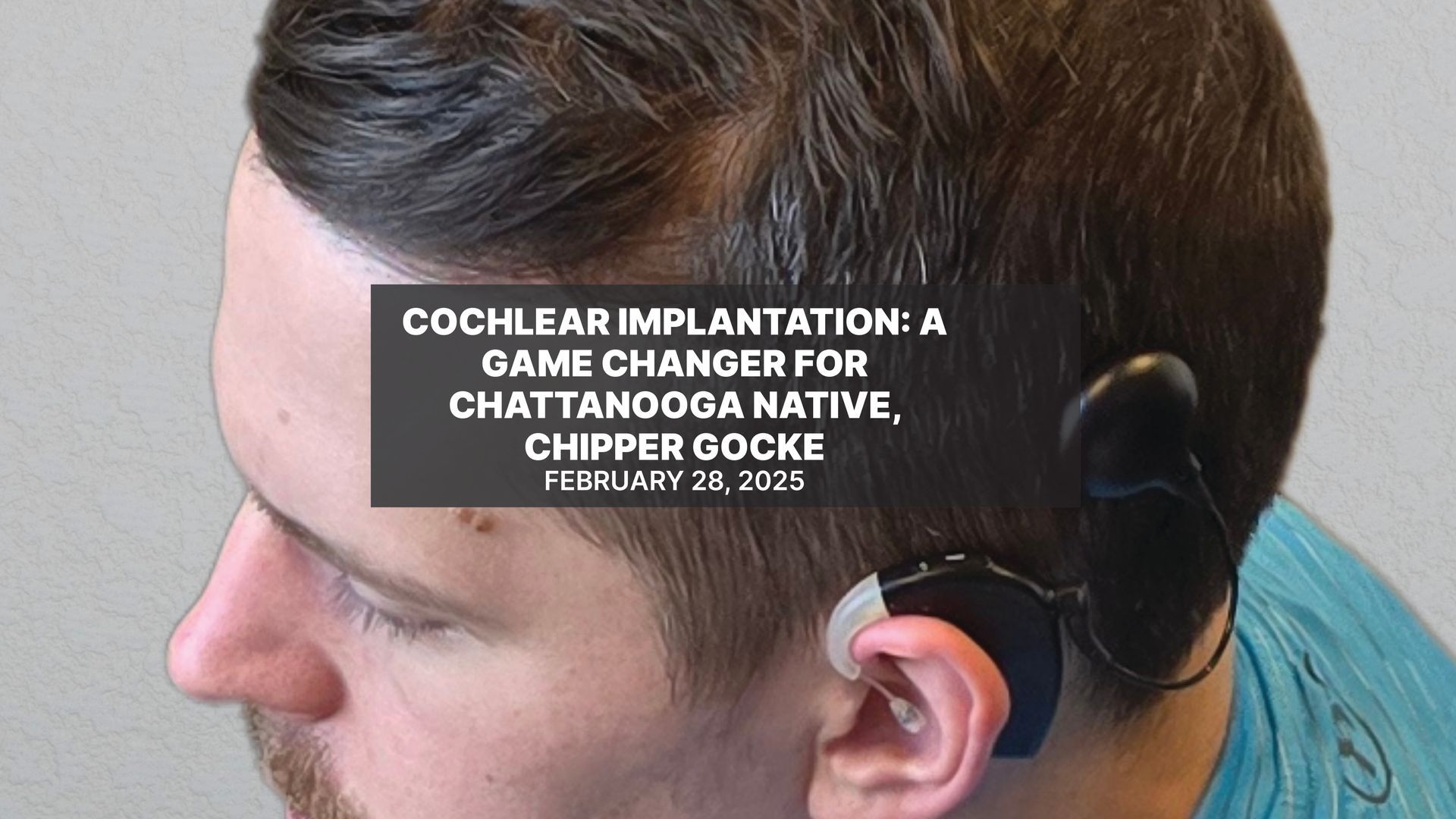By Jan Hollingsworth
•
June 4, 2025
Like anything new in life, adjusting to hearing aids can take time and perseverance to achieve the best results. Yet many people are too quick to give up, not allowing the brain the chance to relearn how to hear or not giving themselves the opportunity to become accustomed to the use and maintenance of their devices. “We meet so many people who wait—who convince themselves their hearing is not ‘bad enough’ or that they can just get by. But untreated hearing loss quietly steals moments, connection, and joy. At Johnson Audiology, we understand the fear, the frustration, and the doubt. That is why we offer more than hearing aids—we offer compassion, answers, and a partner you can trust. You don’t have to do this alone. Let us help you hear your life again,” says Dr. Megan Johnson, audiologist and owner of Johnson Audiology. “Hearing aids should never be an experience where a person is fit with devices and then they never see their hearing care provider again. To ensure patient success, Johnson Audiology seeks to be a lifelong partner on a person’s journey to healthy hearing, someone who is there at every turn,” says Dr. Megan Johnson, audiologist and owner of Johnson Audiology. What are the most common reasons why people give up on hearing aids and why is it important to stick with it? Reasons why people might give up on hearing aids An adjustment period It is your brain that hears, not your ears. The ears transmit sound to the brain where it is interpreted. Dr. Johnson explains, “When a person’s brain has not been stimulated by sound because of hearing loss and then sound is restored with hearing aids, it can take some getting used to. For some people, it takes more than one appointment to get them up to full sound prescription, stair stepping up gradually to let the brain adjust. The brain’s capacity to do this is called neural plasticity .” Research by the University of Colorado Boulder’s Hearing Epidemiology and Research Diagnostic Laboratory has revealed that what the brain can experience impacts within weeks rather than years when hearing loss reaches a certain level. Dr. Johnson says, “The brain’s temporal lobe is where much of hearing and sound interpretation happens. Electroencephalogram (EEG), which is a medical test that measures the electrical activity of the brain, shows that in the presence of hearing loss, the brain will recruit areas assigned to other tasks—like vision—to compensate. The trouble is that this extra cognitive load can tax those areas. However, after treatment with hearing aids, brain recruitment is shown to reverse, partially or fully.” The adjustment period for hearing aids tends to be more seamless for those who have not been without sound for years and years. Dr. Johnson says, “I always encourage people to get their hearing checked when they first notice they are struggling. Sooner is always better.” An investment in quality of life People often make an investment in their health and well-being—for example, purchasing glasses, getting a knee replacement, straightening their teeth—and yet many relegate hearing to the backburner because of cost. Dr. Johnson says, “I’ve seen many patients struggle with hearing aids after buying inferior products in an attempt to save money. Without the guidance of a hearing care provider, even the best device can quickly become ineffective and frustrating.” Dr. Johnson encourages making hearing a priority and budgeting for your hearing health. Perceived benefits and ease of use Getting in the routine of putting hearing aids in each day and being diligent about regular cleaning and maintenance might be a challenge that some face and which deters them from being successful with their aids. “At Johnson Audiology, we offer a plan for regular in-office cleaning and maintenance, easing the task of upkeep for patients. Plus, our offices have dedicated walk-in hours that do not require an appointment. We are here to answer questions, make hearing aid adjustments, and much more as we seek to help people safeguard their investment in hearing technology and make the process easy and convenient.” Family attitudes and support When it comes to hearing aids, having a support system can be crucial to success. “In my 20 years as an audiologist, I have seen the immense benefits when a person’s family members show patience and support during the adjustment period with new hearing aids,” said Dr. Johnson. What about patients who do not have that familial encouragement? Dr. Johnson says, “We are your support system. That’s where our caring and professional audiologists, audiology assistants, and patient care coordinators can lend a helping hand. Success with hearing aids is our goal for every patient, so we promise to be there every step of the way.” Why is healthy hearing so important Hearing loss is a family affair The positive impact of treating hearing loss is often manifested most significantly through improved relationships with family and friends. Hearing loss leads to miscommunication. It can also cause mounting frustration as family members must constantly repeat every sentence. Dr. Johnson comments, “Living with the TV blaring can put a strain on others living in the same household. Untreated hearing loss can quietly tear at the fabric of your relationships. When words go unheard and conversations fade, love and connection start to suffer, and that pain is felt by all involved.” Healthy hearing can help the brain stay sharp and pliable For many years, researchers at Johns Hopkins University have been studying the relationship between hearing loss and dementia. While there is still much left to discover, increasingly scientists recognize healthy hearing as a key factor in maintaining a healthy brain and potentially decelerating the risk of dementia, like Alzheimer’s disease. Dr. Johnson says, “It seems logical that when certain areas of the brain are not stimulated by sound, they atrophy. In fact, research suggests an actual reduction in the physical size of the brain, especially in areas where sound processing and memory take place.” She goes on to say that “while there are many risk factors that individuals cannot control about the effects of aging on the brain, hearing is definitely one that can and should be addressed.” Healthy hearing keeps a person engaged in life Humans are social beings. Since hearing loss can impair effective communication, it is not difficult to understand how it also could lead to social isolation, which can cause increased anxiety and depression. “Conversely, addressing hearing loss can keep a person engaged in life and connected to family and friends,” Dr. Johnson says. Falls and other health risks The ears have two main functions. Hearing is one that most of us learn as youngsters, but the ears also play a major role in helping a person maintain their balance and knowing where their body is in space. “The fluid, or endolymph, in the ear’s semicircular canals is what helps a person do things like stand up from a seated position without falling, walk a straight line, and not run into a door frame when turning a corner into a room,” says Dr. Johnson. In the presence of hearing loss, the reduction in acoustic signals impairs a person’s ability to process spatial information and can mean a higher risk for falling. In turn, falling can lead to broken bones and other injuries and a cascading effect of hospital stays and loss of independence. If you have been unsuccessful with hearing aids in the past, call Johnson Audiology, a hearing health clinic comprised of caring and professional staff. The team can bring a range of options to the table to help people hear better, including hearing aids from all six of the major manufacturers, custom fit products, cochlear implants, and Lyric, the world’s only extended wear hearing aid. Call your office of choice today or schedule online.





